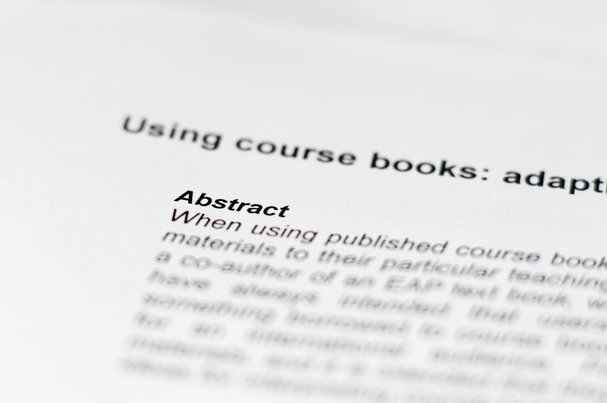
Credit: CulturalEyes - AusSoc2/ Alamy Stock Photo
All in a name: How research paper titles can make or break
Writing style and grammar can affect an article’s citations.
21 December 2016

CulturalEyes - AusSoc2/ Alamy Stock Photo
The impact and influence of research papers can be adversely affected by long titles, too many authors and poor punctuation, new research has found.
A review of more than 150,000 papers submitted to the United Kingdom’s Research Excellence Framework (REF) database in 2014 found the style of a paper’s title impacted the number of citations it would typically receive. In most disciplines, articles with shorter, succinct titles had more citations. The analysis, published in the journal Scientometrics, suggests that writing styles can contribute to a paper’s overall impact.
John Hudson, the study’s author and a professor of economics from the University of Bath, said many academics published papers without giving much thought to the title, even though it is an important tool in catching readers’ attention. “I was interested in whether the style of the title had an impact on journal citations,” Hudson told the Nature Index, “I wanted to know whether this was a discernibly measurable aspect impacting on citations.”
Hudson used an econometric package program, STATA, and statistical modeling to examine the REF data. The results found that citations increased with titles that used colons, and declined with the use of question marks. “Evidently asking the reader a question is not an optimal strategy,” says Hudson.
Different strokes
Headline length and style varied with disciplines. For example, titles on public health articles were often longest, averaging 117 characters. This was followed by clinical medicine and agriculture. Philosophy and economics papers had the shortest titles. Meanwhile, almost two-thirds of sociology papers had a colon in their title, compared to less than one in ten mathematics titles. “People working in that discipline will be influenced by what they read in journals and that includes the style of the title.”
Apart from title characteristics, Hudson found the number of authors on papers was much greater in the sciences than the social sciences, which were in turn higher than in the arts and humanities. “Even within the sciences there are substantial differences, with mathematicians tending to work in small groups, whilst clinical medicine often saw many more collaborators.”
Hudson’s previous research on economics papers found a link between papers with fewer authors and shorter titles, which had higher rates of citations. However, the impact of writing style on a paper’s citation rate over time is hard to measure, he says.
Getting your research noticed
Hudson says his work shows that it takes more than just high-quality research for a paper to reach its intended audience. “There are many black holes in excellent journals, such as papers with few citations. And equally there are many highly-cited papers in what people might think of as lesser journals,” he says.
“What matters most is the quality of the research and the paper. However, given that, if you have a high-quality output, why not do all you can to promote it.”
